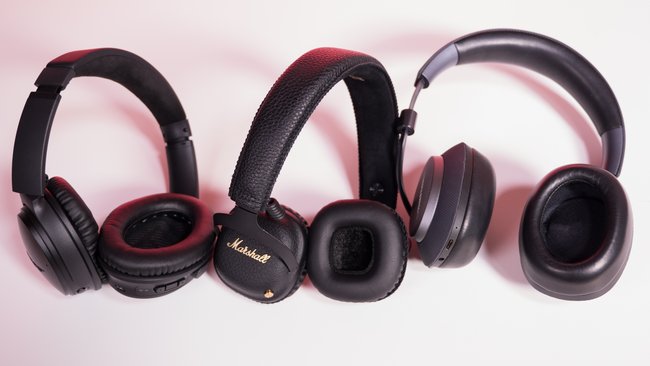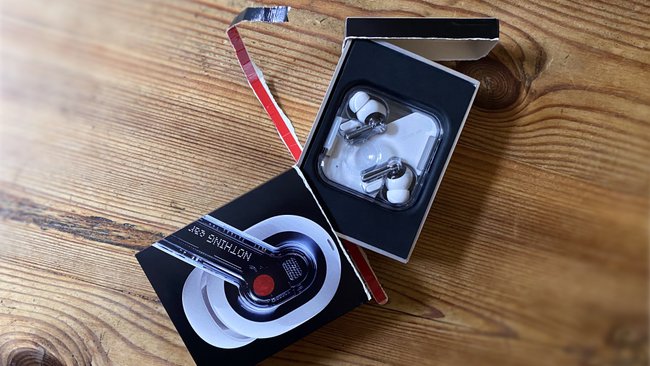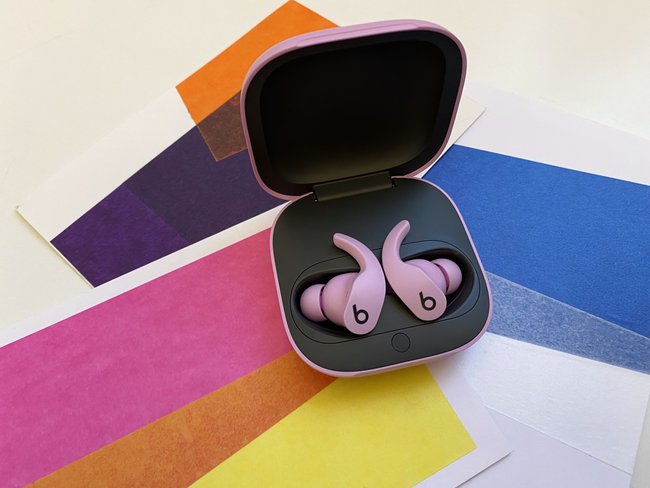Headphone Buyer’s Guide 2022
In-Ear or Over-Ear? Open or closed? Neckband or True Wireless? Studio or DJ? We’ll show you how to find the right headphones for your needs and name our favorite headphones of 2022.
Update notice: We last checked the prices and availability of the products mentioned here on 04/20/2022 at 7:00 p.m.
Rise of the headphones: dive down and show off
Let’s talk headphones! The IT industry association Bitkom has interesting figures on this: 71 percent of all Germans (from the age of 16) currently have one or more headphones, which are used daily by 38 percent of owners (2019, Study as PDF). the Sales figures have been increasing for years (currently over 16 million pieces per year in Germany) and anyone who visits their local MediaMarkt will find that headphones are now being given significantly more space on the sales floor than was the case before the smartphone era.
The big names of the past (Sennheiser, AKG, Beyerdynamic, Sony, etc.) have been joined by new brands (Beats, Apple, Samsung, etc.), which has increased the choice even more – it’s no longer that easy for us consumers to keep track and make the right purchase decision. What’s behind the hype? Well, the purpose of headphones is by no means just “listening to music” – according to the Bitkom study, they also serve to “block out the environment” or as a “fashion accessory” and are even a “status symbol”. Conclusion: What used to be an audio niche product has become a coveted and smart lifestyle object that can sometimes cost a little more. So it can’t hurt to know a little bit about headphones.
Headphone distinguishing features: This is what the manufacturer’s designations mean
- With or without cable: Wired Headphones do not require a battery, they are connected to the playback device (e.g. JBL Tune500) via a jack socket (usually 3.5 mm). Different wireless headphones, they work with Bluetooth or via radio (2.4 GHz) and need an integrated battery. Except for the “annoying” cable (trip hazard, wearing part), wired headphones are technically superior (no latency, no compression, no disconnections) and are especially recommended for home use and in the studio. On the other hand, models with Bluetooth are much more comfortable on the go.
- How “wireless” would you like it to be? When the two shells of an in-ear headphone are connected with a cable (but receive signals via Bluetooth), it is called one neck strapmodel (e.g. Beats Flex, see also GIGA test). If absolutely no cables are present, then it is one True wireless headphones (e.g. Samsung Galaxy Buds Live, see also GIGA test).
-
- Overhead Headphones: They can also be worn while ironing, but that’s not why they’re called that. The real reason is the connecting piece between the two housings (earphones), which sits on the user’s head like a headband. The bracket holds the two housings in place and provides the necessary contact pressure. In most cases, the length is adjustable so that the headphones fit different head sizes. By the way: It is often feared that wearing headband headphones could lead to hair loss (“headset baldness”), but has not yet been proven.
- Open, closed, half-open: What is meant is the construction of the housing in which the sound transducers are inserted. Closed headphones shield better from the environment (passive noise isolation) and tend to sound more powerful (e.g. Shure SRH440). Open headphones are practically only suitable for quiet environments, but often offer a wider sound stage and are therefore preferred by audiophile music lovers (e.g. AKG K702). Half-open headphones are the golden mean and ideally combine the advantages of both designs (e.g. Beyerdynamic DT 880).
- Over-ear, on-ear, in-ear: These are headband headphones with large housings that completely cover the ear cups Over Ear Headphones (“circumaural”). More compact designs rest on the auricle and are called On-Ear Headphones. When the housing is (partially) inserted into the ear canal, it is referred to as in-ear headphones. These are available both with silicone fittings (“earphones”) and without (“earbuds”) – more on this in our guide to in-ear headphones without rubber attachments.
- ANC (Active Noise Cancelling): Electronic process that captures ambient noise with microphones and fades it out at lightning speed using anti-noise. It doesn’t ensure absolute silence, but it can effectively soften low frequencies in particular (engines, aircraft noise). ANC headphones usually cost a little more than conventional models.
- Studio and DJ headphones: professionals from the field of music production and event technology have special requirements. If headphones are to be used for mixing and mastering recordings in the studio, they must be neutrally tuned and preferably not distort the sound in the slightest. Lifestyle headphones are not suitable for this, since the manufacturer often gives them their own sound character (e.g. bass emphasis). DJs pay attention to good shielding from ambient noise and particularly robust and flexible construction methods. The headphones are often put on and taken off in just one ear when the tracks are crossfaded – it’s practical if the housing can be angled by means of a joint (e.g. Denon DJ DN-HP 1100).
- Headset (headset): Many headphone models come with built-in microphones, which technically makes them suitable for making phone calls or communicating in games. In this context, the term “headset” is appropriate – even if there are also “real” headsets and gaming headsets. These are headsets that are not intended for enjoying music, but mainly for communication (see also: Headset test: recommendations for home office, office and Co.).
Headphones 2022: The 8 GIGA favorites for different purposes
There is no such thing as “the best headphones in the world”. Rather, what is decisive is which requirements exist, which budget is available and which compromises the user can accept. There are champions to be found in every task field – below I will name a model that me personally convinced and that I would recommend to a good friend. Other models are presented and discussed in the linked GIGA purchase advisors.
1. Studio Headphones (Over-Ear, Wired): Beyerdynamic DT 770 Pro. Classics, tried and tested for decades (!) and appreciated by professionals. Sounds crystal clear and powerful at the same time, is solidly built, sits comfortably. Unreserved purchase recommendation.
2. Companion for iPhone (True Wireless Headphones): AirPods Pro. They are light, compact and reliable. Ambient noise is hidden via ANC, the interaction with Apple devices is almost perfect (see GIGA test).
3. Android Phone Companion (True Wireless Headphones): Samsung Galaxy Buds Pro. Good sound and ANC, the price has now fallen significantly (see GIGA test).
4. Lifestyle Headphones (True Wireless Headphones): Nothing Ear (1). Strange name, extraordinary design. This model is partly transparent and therefore stands out.
5. Sports Headphones (True Wireless Headphones): Beats Fit Pro. Apple technology (H1 Chip, 3D Audio, Hey Siri) in a case optimized for athletes (with flexible silicone wings).
6. Travel Headphones (Over-Ear): Sony WH-1000XM4. Superior noise canceling ensures a comfortable rest. Extremely comfortable, excellent sound quality. Mandatory purchase for frequent travelers on trains and planes (GIGA test: 9.3 out of 10 points)
7. DJ Headphones (On-Ear, Wired): Sennheiser HD 25-1 II. A proven tool for professional DJs for many years. Can also play very loud, take care of your ears.
8. Luxury Headphones (Over-Ear, Wired): Beyerdynamic T5 (3rd generation). Closed construction, best materials, handmade in Heilbronn: If you buy these headphones, you may never need a new one again. I was able to listen to the T5 for a few hours and confirm without hesitation that the manufacturer’s promise of “uncompromising and clear sound” is absolutely correct. Music gives you goosebumps.
Don’t want to miss any more news about technology, games and pop culture? No current tests and guides? Then follow us on Facebook (GIGA Tech,
GIGA Games) or Twitter (GIGA Tech,
GIGA Games).














